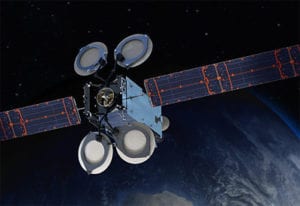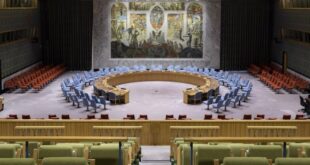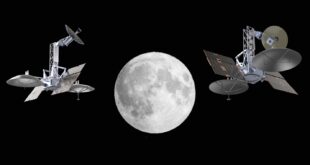
On Tuesday, 6 August 2019, SpaceX’s Falcon 9 rocket successfully lifted off from Space Launch Complex 40 (SLC-40) at Cape Canaveral Air Force Station, Florida, carrying the AMOS-17 satellite for Spacecom. Liftoff occurred at 7:23 p.m. EDT, or 23:23 UTC and the satellite was deployed approximately 31 minutes after liftoff.
This was the third and final flight for this particular Falcon 9 first stage, having previously supported the Telstar-19 VANTAGE mission in July 2018 and the Es’hail-2 mission in November 2018.
The AMOS-17 satellite was designed by Spacecom using Boeing’s advanced digital payload technology to provide increased connectivity to Africa. With its extensive abilities, flexibility, and reliability, AMOS-17 is poised to support growth in a variety of broadcast, broadband, mobility, and data services throughout the African continent. It will be deployed to the 17E orbital position, right over central Africa, to optimize service in the region.
AMOS-17 will operate in the C-, Ku- and Ka-bands with a digital channelizer to provide fixed high throughput (HTS) C-band coverage to Africa, steerable HTS Ka-band coverage to anywhere from China to Brazil, and extensive Ku-band coverage throughout Africa with additional coverage in Europe, the Middle East, China, and India.
The satellite’s digital processing capabilities provide connectivity between all of AMOS-17’s beams in all available bands in any combination. These capabilities also support suppression of interference, flexible capacity allocation, and other digital processing features for improved service. Additionally, all command and control channels, as well as telemetry, are encrypted for maximum security.
AMOS-17 is planned to be in operation for a minimum of 20 years, enabling long-lasting and stable service.





